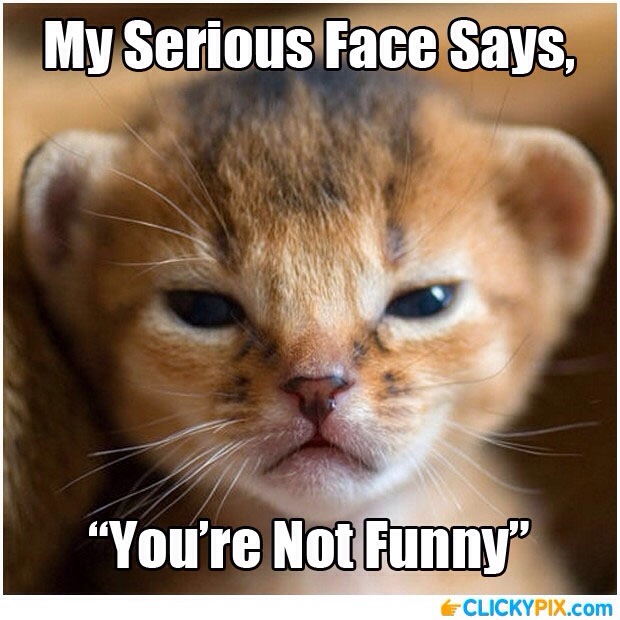I met a friend recently and had a chance to catch up with her briefly. She asked what it was I did exactly at The Tapestry Project. So I explained that I write about my personal experiences with mental illness as well as others’.
She burst into an uncontrollable fit of giggles, red as beetroot.
After what seemed like five minutes of progressive chortling (or confusion, on my part), she excused herself and said that she probably forgot to take her medication.
“Medication? Are you seeing a doctor for something?” I asked, tentatively.
“Oh don’t be silly! It was just a joke!” she gushed.
She was implying that her “weird” behaviour was due to a lack of medication. Presumably psychiatric medication.
While the stigma of mental illness isn’t as pronounced today, thanks to the dedicated efforts of various mental health advocates and agencies, there remains “jokes” that make light of mental illness and in effect, the people that live with it everyday.
Now, before you assume that I’m some boring, humorless soul, consider this:
Major Depressive Disorder (and anxiety) has caused me to experience a myriad of losses on all fronts, particularly the ones that make up a person’s identity — work, relationships, hobbies, aspirations, faith.
It made routine tasks, like getting out of bed, traveling, meeting people etc, impossible on some days. I lost not only my confidence and self-esteem, I also lost hope.
This illness has also caused my loved ones a lot of pain, a lot of tears. Something that I will always feel sad and guilty over. It’s never easy. But I do my best to get better and to stay well, so that they hurt less.
After asking her a couple more times just to make sure she wasn’t trying to disguise a diagnosis, it seemed that she really did mean it as a joke and that she was genuinely okay.

My concern grew into offense.
Was she mocking my years of emotional pain? Was she making light of the daily pills on which my life depended? My having to deal with frustrating medication side effects? The financial sacrifices made? The sleepless nights my husband endured keeping vigil? The desperate pleas and prayers of family?
I’m sure she didn’t mean to make fun of me. But it certainly felt that way.
In that instant, it felt like all those years of pain I went through became invalid, nullified; nothing more than a brief topic of someone else’s amusement.
I took the opportunity to share with her that there are people with genuine health issues who avoid seeking treatment because of such jokes, and that medication did play a critical part in my recovery.
She smiled and nodded her head absentmindedly as she checked her phone, her body inching away from me subtly.
Ignorance — A Vehicle For Stigma
With today being World Mental Health Day, this incident serves as an excellent reminder that ignorance still exists in our society, with people who are clearly uncomfortable with the mention of mental illness, much less the discussion of it.
This sort of avoidance, and therefore ignorance, impacts mental health sufferers on a direct, personal level.
In my case, I’ve lost my friend’s trust and esteem. Our friendship has been irrevocably altered. Not because of my disclosure, but because she does not realise that I am separate from my illness, and I am living in recovery!
Sadly, she isn’t the only person in my life who has responded this way. Some have walked away and never turned back.
Yet, Gratitude
Disclosure is risky because there’s no way I can control other people’s reactions.
But if by being open about my diagnosis meant that I could empower one person, or at least turn a negative response into opportunity to enlighten, it’s a risk I am willing to take.
And I discovered this: There are more positive outcomes than negative ones.
I am grateful there are many who have spoken up for people like me, who believe in sharing their story, and who remain steadfast in stomping out the stigma that accompanies a mental health diagnosis.
With close to 10,000 site visits in the last nine months, it is clear that there is a growing recognition of the value of mental health education through our stories — Tapestry stories.
I am truly fortunate that I get to write for such compassionate and courageous readers. You guys make it all worth it.
Buffer or Barrier?
So yes, I wholeheartedly agree that a bit of humor (ok, maybe a lot) is healthy, even necessary to cope with life’s challenges. For many, it diffuses tension and acts as a buffer of sorts.
Yet where do we draw the line? How do we know if we’re being offensive?
Simple — when the joke has content that demeans another and/or promotes ignorance.
Let’s not allow this “buffer” become a barrier instead to understanding and empathy.
Humour doesn’t hurt people; ignorance does.
Happy World Mental Health Day!
Nicole is the founding editor of The Tapestry Project SG, a social movement and online publication that champions first-person narratives to inspire hope, dignity, and empathy.

